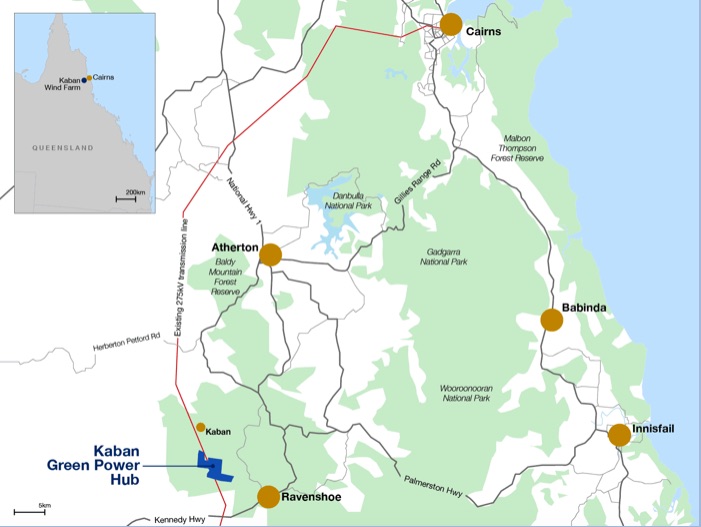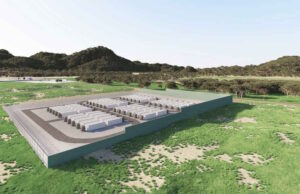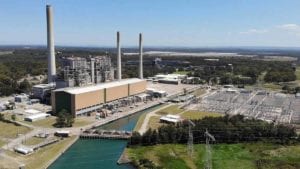Federal Resources Minister Keith Pitt has made an extraordinary intervention to veto a proposed $280 million loan from the Northern Australia Infrastructure Facility for a wind and battery storage hub in north Queensland.
The Kaban Green Energy Hub is a 157MW wind project south-west of Cairns that will be built by French renewable energy developer Neoen, and which also has planning approval for a 100MW big battery.
Last year Neoen was advised it had reached the “due diligence” stage to receive a loan from NAIF for the $340 million project, but it appears that Pitt intervened at the last minute in March, vetoing the deal just as it had been finalised by the NAIF board.
“I am not convinced that the project will result in lower energy prices,” Pitt wrote in his rejection letter, obtained by RenewEconomy (but first published in The Courier Mail) adding it was “inconsistent with the objectives and policies of the Commonwealth Government.”
The letter reveals NAIF had issued a formal “proposal” in January, and Pitt first intervened in February, extending the consideration timeline for the 25-year loan by 60 days, and then nixing the funding deal in a letter dated March 29.
Pitt has been a loud critic of renewable energy and a strong supporter of fossil fuel projects. Ironically, he had called on consumers to boycott ANZ last year after the bank said it would take climate considerations into its lending practices.
Labor immediately seized on the controversy, pointing out that the project would deliver significant savings – $461 million – and provide jobs for more than 250 people.
“North Queensland should be getting 250 new energy jobs and cheaper power bills, but they’ve been hung out to dry,” Labor energy spokesman Chris Bowen said in a statement.
“This Government’s ideological obsession against renewables is costing jobs and lower power prices,” added Murray Watt, Labor’s spokesman for northern Australia. Labor also noted that the veto had come before federal trade minister Dan Tehan’s visit to Paris, where he met senior Neoen executives and welcomed French investment.
Labor suggested that the project has been “killed” by Pitt’s intervention, but Neoen says it is focusing on alternative funding arrangements.
Last October, it signed a long term contract with the state-government owned CleanCo, which will take most of the output of the wind project (100MW) once it is complete in 2023. The project was also going to include transmission infrastructure and possible a synchronous condenser, but that may no longer be needed given the progress in inverter settings which is solving system strength issues.
“We were disappointed to learn of NAIF’s decision not to proceed with a loan to Kaban Green Power Hub,” Neoen Australia managing director Louis de Sambucy said in a statement.
“Neoen remains committed to Kaban and the opportunities it presents for energy affordability, reliability and emissions reductions in Queensland. The project combines a 157 MW wind farm contracted with CleanCo at a competitive electricity price, with a network improvement in Far North Queensland.
“Our focus remains on delivering Kaban. We are now actively exploring all options and are hopeful of announcing a positive pathway forward in upcoming days.”
Neoen has been one of the most successful developers of green energy projects in Australia, so far investing more than $2.5 billion of projects, including the Hornsdale Power Reserve (aka the Tesla big battery), and is now building the country’s biggest solar farm – the 400MW Western Downs project – in south-west Queensland.
It is also building the 300MW/450MWh Victoria Big Battery, which will overtake Hornsdale as the biggest battery in the country, and has been particularly successful in winning auctions conducted by various state governments, particularly the ACT.
Pitt said that he would tabling a full explanation of his reasons for rejecting the loan in Parliament.
“My statement of reasons for the decision will be tabled in the parliament in accordance with legislative requirements,” Pitt said. “The company is free to put its case to other suppliers of finance, including the Queensland Government.”
Pitt’s letter in full:









